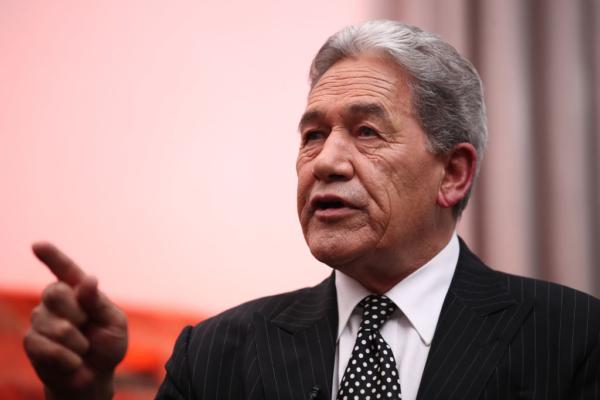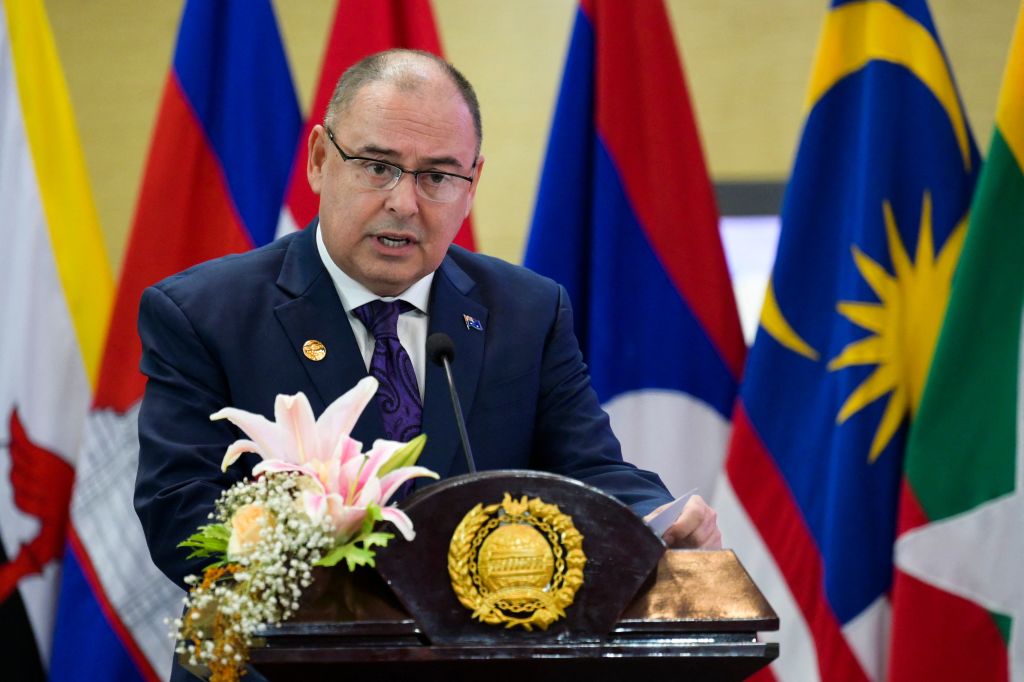The new deal could breach longstanding agreements with New Zealand, which provides the majority of aid to the Cook Islands, and will no doubt concern the US.
A closer-than-expected relationship between the Cook Islands and Beijing has been suddenly revealed by an announcement that its Prime Minister Mark Brown is to make a state visit to China—reportedly as soon as Feb. 7—where he will sign what his government is describing as a “comprehensive statement of partnership” with the communist regime.
The relationship between the Cook Islands and New Zealand is complex.
Like Niue, the Cook Islands are in “free association within the Realm of New Zealand”—an area that includes the two island nations and New Zealand, along with the territories of Tokelau and the Ross Dependency.
The Cook Islands and Niue do not have full constitutional independence from New Zealand but act as independent countries. Some countries, including the United States, have recognised them as sovereign entities and established diplomatic relations.
However, New Zealand may carry out defence and foreign affairs on their behalf when requested.
Both were formerly dependencies of New Zealand but the Cook Islands changed its status on Aug. 4, 1965. The New Zealand Act of Parliament, which established self-governance, mentions New Zealand’s role, but the Constitution of the Cook Islands does not.
Neither document gives New Zealand any right to control the decisions of the Pacific island nation.
However, its nationals are automatically New Zealand citizens and carry that country’s passport.
Data from the Lowy Institute shows that between 2008 and 2022, New Zealand provided 42 percent of all the aid received by the Cook Islands (A$219 million/US$137.66 million). China, at $112 million, contributed 22 percent, and Australia provided $48.7 million or 9 percent.
New Zealand, Cook Islands Commitments
Last year, New Zealand’s Foreign Minister Winston Peters announced NZ$20 million in Core Sector Budget Support for the Cook Islands over the next two years, targeting education, health, and tourism.

The statement from the annual ministerial forum between both countries spoke of “a relationship based on historical, familial, cultural, economic and social ties that have existed between the two countries and their people for generations.
“These foundations are enhanced by our linkages today of shared values, history, citizenship, and partnership,” it said, and went on to offer assurances that “Ministers reconfirmed their mutual commitment to consult each other on issues of importance.”
So the unexpected announcement that Brown is about to sign an agreement with Chinese Communist Party (CCP) leader Xi Jinping has caused considerable consternation in Wellington.
Peters said in a statement that New Zealand has “consistently made clear to the Cook Islands that any major changes to the … relationship, including policies which could entail the Cook Islands moving towards full independence from New Zealand, must be decided by the Cook Islands people via a referendum.
“We have also emphasised that we would expect the New Zealand government to be fully consulted on any major international agreements that the Cook Islands plans to enter into that have major strategic and security implications.
“We have conveyed these concerns in a clear and respectful manner, including through meetings between Prime Minister Brown and New Zealand’s leaders,” he said.
“New Zealand also recently requested formal consultations with the Cook Islands, which took place in Rarotonga last week and were conducted for New Zealand by the Secretary of Foreign Affairs and Trade Bede Corry.
The Minister confirmed there are a number of issues where New Zealand and the Cook Islands government currently disagree.
These issues included “the lack of transparency by the Cook Islands in respect of policies and partnerships with other countries, which could have significant security implications for the Cook Islands, New Zealand and the wider Pacific family.”
That “wider family” will undoubtedly include Australia and the United States, which form the primary bulwark against the CCP’s expansionist policies.
Strategic Value
The Cook Islands’ strategic importance is primarily due to their geographical location in the South Pacific. This provides a strategic vantage point for monitoring regional activity, and means the country could also potentially serve as a logistical base for regional operations.
Its 1,960,027 square kilometre (756,771 sq mile) EEZ is important for maritime surveillance, particularly in relation to potential threats like illegal fishing, drug trafficking, and transnational crime.

Although it does not have a military, it is seen as being able to support regional security efforts through intelligence sharing and cooperation with New Zealand forces.
According to the Chinese Embassy in Wellington, Beijing’s overtures to Rarotonga, the largest of the Cook Islands, began in 2015 and have continued since. Gradually, Cook Islands leaders, including successive prime ministers, have been granted higher levels of access to CCP officials.
In December, the Cook Islands hosted Beijing’s Executive Vice Foreign Minister Ma Zhaoxu, with the growing closeness between the two countries culminating in Brown’s visit later this week.

